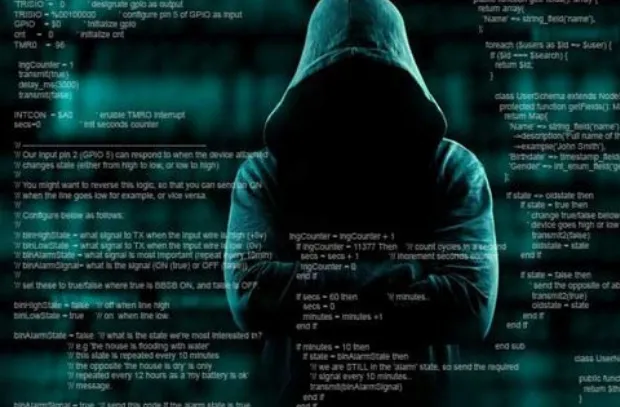In this era of digitization, data really powers everything we do. Personal data has become the new oil of the internet and the new currency of the digital market. Large technological companies like Amazon, Apple, Facebook and Google have penetrated people’s lifestyles from shopping to social interaction. These companies have also replaced oil, gas and telecommunications firms among the top 10 global companies based on market capitalization in 2018. The online platforms provide various benefits, but have simultaneously gained a significant control of consumer data, which can be easily breached into.
The process of digitization in all aspects of human life, like healthcare, education, business, etc., has gradually led to the storage of all sorts of information, including sensitive data. Without a well-established cybersecurity program, any organization cannot defend and shield itself against data breach campaigns, making it an irresistible target for cybercriminals.
Cyber security is about people, processes, and technologies working together to encompass the full range of threat reduction, vulnerability reduction, deterrence, international engagement, incident response, resiliency recovery policies and activities, including computer network operations, information assurance, law enforcement, etc.
The onset of COVID-19 pandemic has led to a massive increase in remote workers worldwide and it is here to stay. In the age of remote work, cybercriminals are taking advantage of misconfigured cloud security measures and insecure home devices and networks. Remote workers are also often the target of phishing attempts by email, voice, text, and third-party applications.
With the growth in internet technology, the word is moving towards cloud computing. The cloud computing brings new challenges to the law makers. The distinct challenges may include data security, data privacy, jurisdiction and other legal issues. There pressure on the cyber legislators and stakeholders would be to provide appropriate legal framework that could benefit the industry and enable effective remedies in the event of cloud computing incidents. In 2017, a 9 Judge Bench of the Supreme Court delivered a unanimous verdict in Justice K.S. Puttaswamy vs. Union of India , affirming that the Constitution of India guarantees to each individual a fundamental right to privacy. Thereby an individual has the right to make his choices which is intrusive of allowing him to use any medium to express his views like print medium, digital platforms, social media etc. but while an individual is availing his right of making choices an equally opposite duty lies on the state to take care that such right to choose should not get affected.
The social media is beginning to have social and legal impact in the recent times raising significant legal issues and challenges. Since the law enforcement agencies, intelligence agencies target the social media sites; they are the preferred repository of all data. The inappropriate use of social media is giving rise to crimes like cyber harassments, cyber stalking, identity theft etc. The privacy in social media is going to be undermined to a great extent despite the efforts by relevant stake holders. The challenge to the cyber legislators would be to effectively regulate the misuse of social media and provide remedies to the victims of social media crimes. Social Media Litigations are also likely to increase concerning the association or nexus with the output of social media.
There is considerable growth of spam in emails and mobiles. Many countries have already become hot spots for generating spam. As the number of internet and mobile users increase the spammers make use of innovative methods to target the digital users. It is therefore necessary to have effective legislative provisions to deal with the menace of spam.
Monetization is another key factor contributing to the rise in cyber-attacks. Cybercriminals have increasingly turned to ransomware attacks, or those in which attackers gain access to and encrypt a victim’s data and demand a ransom. Cryptocurrencies and the emergence of ransomware have made it easier for someone to commit a crime and get away with it because they can get paid in untraceable ways. This trend has motivated attackers to commit cybercrimes in pursuit of monetary gain while simultaneously making it more difficult to track and identify these criminals. As a result, the need for skilled cybersecurity professionals who can implement strategies to prevent these attacks continues to rise.
About 4 out of 5 individuals who use internet believe that their personal data is used without their knowledge and/or shared with third parties without their consent. Protection of personal data is inextricably linked with privacy i.e. right of every person to enjoy his life and liberty without arbitrary interference with his private life, his family, his home or his correspondence etc. Today’s businesses derive a substantial value by analysing the ‘big data’ and often determine their business strategies based on such analysis. While there is no denying the business efficiency involved, the burning question is ‘do individuals have a control over the manner in which information pertaining to them is accessed and processed by others?’
There have been increasing concerns about data privacy in the world of cybersecurity, both in the context of consumer and company information. There are various federal, state-level, and international data privacy laws that today’s organizations need to comply with, and consumers are also becoming more concerned with how their data is being used.
Data breaches and cyberattacks expose sensitive personal information and put consumers and companies at risk. Today’s organizations need to consider things like data encryption, password protection, and network security to strengthen their data privacy. It’s also important that businesses have a team of highly skilled cybersecurity professionals working to secure their data and protect against potentially devastating data breaches.




